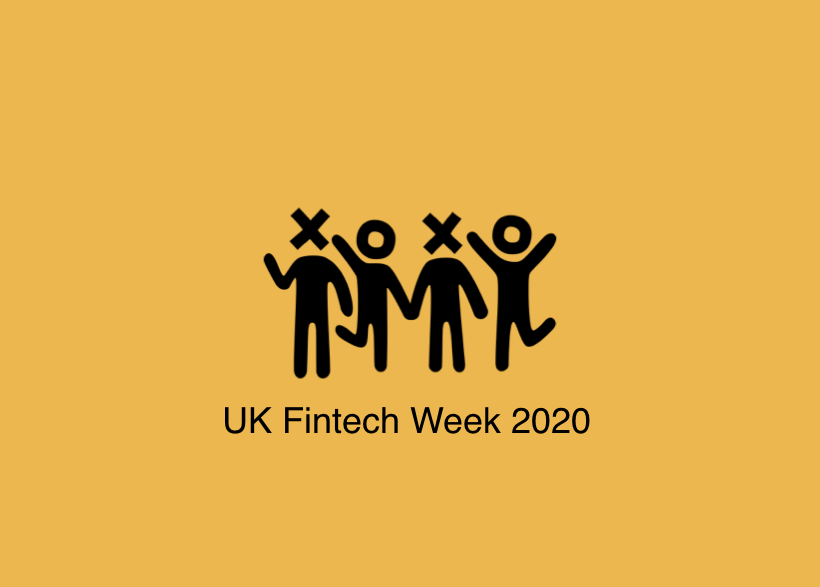At tomato pay we unequivocally stand by those making a change for the better to give Black individuals rights most people take for granted; to lead a life without fear, without discrimination and equal opportunities to succeed and flourish.
It continues to simultaneously anger us and break our hearts to see how the Black community is treated - a community who designed and invented so many cultural experiences enjoyed by masses of people globally. Financially, the Black community who own businesses generate over £10 billion for the British economy, and according to the Institute of Practitioners in Advertising (IPA), the spending power of Black consumers is £300 billion in the UK alone.
We could go into the many sad, unfortunate catalysts for the Black Lives Matters Movement’s rise in profile this year, however, it should have always been obvious that racism towards Black people has always been prevalent yet highly ignored for centuries. Former professional NBA player, Kareem Abdul-Jabbar words come to mind: “Racism is like dust in the air. It seems invisible – until you let the sun in. Then you see it’s everywhere. As long as we keep shining that light, we have a chance of cleaning it”. The world is forever changing, and with that, people’s views and actions towards one another must change too.
We believe that the Black Lives Matters Movement is a watershed moment. The actions taken now as individuals and as businesses will define our generation forever.
Before we get into more of our thoughts and own actions as a business, we created this doc with a list of ways you can support the movement. It was initially sent around internally over a month ago, but we believe that the more people who see it, the better. It is by no means exhaustive. We welcome feedback, especially the names of small black-owned businesses, and people who deserve exposure in the fintech/finance network to add to panels, include in blog posts, or work with. Please email Lisa at lisa@tomatopay.co.uk for any suggestions/feedback.
No one is born racist.
Generation after generation has made huge efforts to improve the world we live in. This comes as no surprise; we live in a globalised, more technologically advanced world. As a consequence, the masses have a platform to share and expose various levels of atrocities taking place and those that are directly affected by it. Fortunately, this open dialogue has allowed people to protest for swift action to rectify these wrongs, and allow people to help financially, help by amplifying the message, or forwarding these situations to the bodies who are involved and can take action to fix it.
In this blog post, we will be giving our take on diversity as a long-term plan, not as an ‘initiative’ or a ‘PR bandwagon to jump on’. We believe that we should all be looking internally at how to change attitudes and biases that impact every single decision from hiring and pay-rises, to product development and product design - cultivating a diverse workplace should always be a long-term plan embedded into the culture of one’s business. Not only will this create economic prosperity for the individual, the company and the global economy, but it is, in the bluntest of terms, the right, moral thing to do.
Diversity as an embedded, long-term plan
There are many different things to tackle when creating a plan to embed a shift in thinking culturally as a leader.
We won’t claim to be experts so I point all those reading this to Harvard Business Review’s (HBR) ‘Changing Company Culture Requires a Movement Not a Mandate’, UX Collective’s ‘The racial implications of AI and UX’, Adobe’s ‘Removing Bias in AI - Tackling Gender and Racial Bias’, McKinsey’s ‘Diversity wins: How inclusion matters’ and the long, but worth reading, ‘Toward a racially just workplace’ by HBR to start looking deeper into the issues at play here when thinking about racial bias whilst creating products and building companies.
What we can talk about with authority is (1) what tomato pay's cultural DNA looks like, and (2) how we have established it.
First, some internal statistics on the tomato pay team’s DNA:
- At board level, out of the two board members, one is a woman of mixed/black origin.
- Out of the four founders at tomato pay, half the team are women and are of mixed/black origin.
- Out of the five members of the management team, two of the men are of Black, Asian or of mixed ethnicity.
- Out of the wider team of 18 people, nine are women. Out of the 18 people, one is classed as Black, six are classed as Asian, and three are of mixed ethnicity
As a fintech company, we ensure that we are all aware of the wider issues at hand, and why inclusivity and being aware of prejudices are so important when building a financial product, and setting up a business for success in 2020.
- Financial inclusivity is a huge problem across the world, and racial prejudice in the finance industry is rife. One example - a Cambridge University study revealed figures showing ethnic minority victims of fraud are more than twice as likely to be denied a refund by their bank as White customers, despite clear rules. Our duty as a fintech business is to recognise that a diverse team will not only improve the different types of ideas brought to the table when creating a financial platform, but it also helps us to create an inclusive one.
- The tomato pay platform uses machine learning, behavioural science and AI models, so it was imperative that the group of people who touched the code, or models, did not all come from the same background. The importance of this practice is highlighted in the UX Collective’s piece linked above where they talk about one particular instance, “Much like the social standard of modern Western society, the data being used (in this instance) is based on predominately white men. If a machine is programmed to learn like a white man and see like a white man, the margin of error for anyone that is not a white man may be of critical importance”.
- The tomato pay platform also uses behavioural science. You can see our thoughts on how we remain ethical whilst implementing behavioural science in our product over at our blog.
Working for underserved communities, and using these technologies meant that we have always had to consider diversity within the team as a long-term plan. We acknowledge that training alone does very little to change behaviour, therefore we look to change our systems and processes to be as inclusive as possible.
So what are we doing to create an inclusive, diverse environment?
- Hiring: At tomato pay we use external software to ensure that our job descriptions are not biased. In the past we have used Textio. We then use an internal blind-hiring system (although the applications come from Workable, or Work in Startups, for example, we created this internal system to allow us to fairly judge CVs on experience). We are unable to see universities or names until we choose who will go on to the first round of interviews. Then, the designated hiring manager for the role contacts the person and we ensure that both women and men from different backgrounds get the opportunity to interview that person. We are transparent from the start about what our values are as a team, and how we function as a team. If a potential team-member feels they will interview better in a language other than English, we do our best to accommodate.
- Awareness: Management highlights days dedicated to causes and movements (such as the Black Lives Matters movement or International Women’s Day), and ensures that the team is made aware of the company’s stance on these matters during our weekly meetings. The team is always encouraged to speak up and ask questions that they are curious about in a respectful way.
- Uncomfortable discussions: The team is always reminded that they may not know everything and that’s okay so long as you ask and learn from the experiences and answers of others. Of course, we welcome healthy debate, and people can disagree - which has of course happened; we’re not afraid to have uncomfortable discussions as a group. However, at tomato pay we have been fortunate enough that people have acted inclusively, and we believe that stems from our decisions early on directly from our hiring process.
Of course, we have much we can improve on, and we are committed to making changes as we are always striving to do better. We are aware that the only way to create a diverse workplace in the long-term is to achieve representation on all levels of the hierarchy. We also need to ask ourselves questions such as - how will we support others who are not fully abled? Are we ensuring that our workplace is LGBTQIA inclusive? How can we hire and retain women in senior management (one area we admittedly are doing poorly in)? How can we attract and hire more people who are Black, Asian or of mixed ethnicity?
These are areas we are particularly looking into as we grow, especially as we publicly committed in our BCR Capability and Innovation Fund bid to create jobs alongside untied (the UK’s tax app) and support the struggling UK economy.
As we stated early on in this blog, the spending power of Black people is often under-appreciated, and to stimulate spending, as a business leader you must look at how to create jobs for the majority of people, not the minority of people - a diverse, morally just company is much more profitable than one that is not. To ignore a whole community and their spending power is beyond foolish.
On an individual level, you must be able to live your life knowing you did your part in creating a fairer society for communities who are discriminated against because of the colour of their skin. We all have to play our part in dismantling the systematic racism ingrained in our society. People should be treasured because of their personalities, talents and experience, and following the strong support seen for the Black Lives Matters Movement, we can only hope the world follows suit soon.



-3.jpg)


